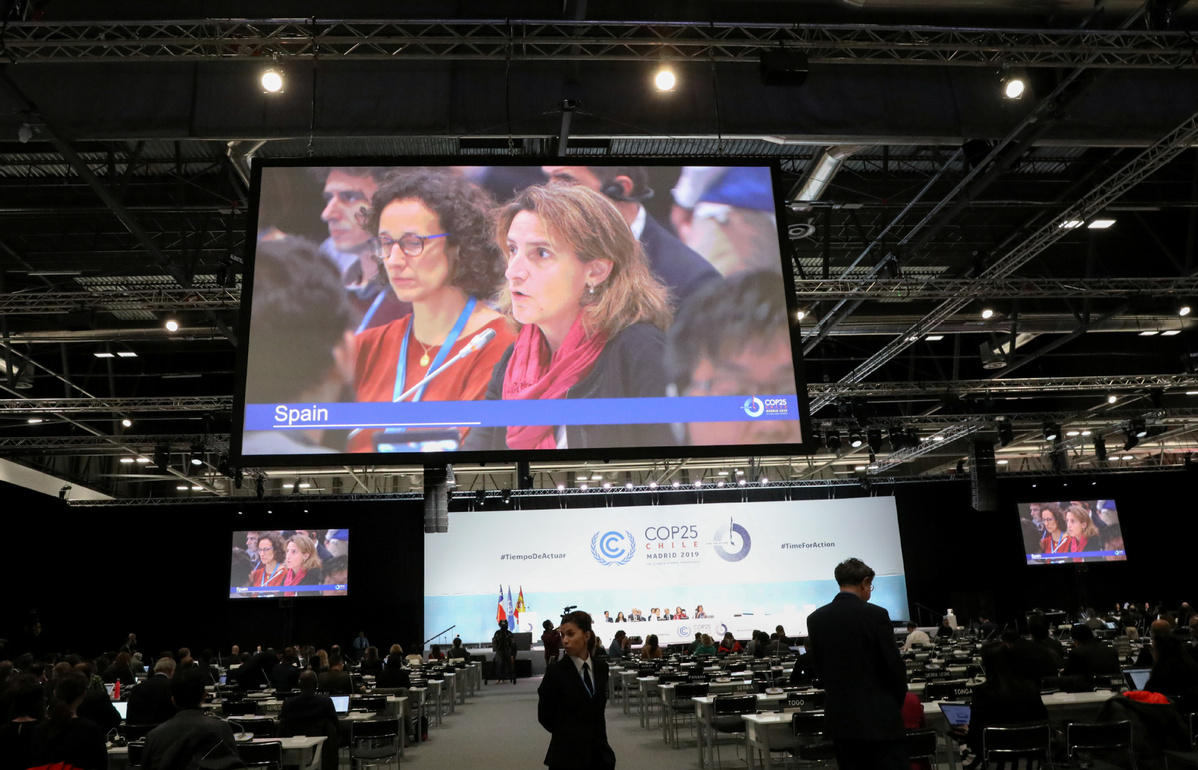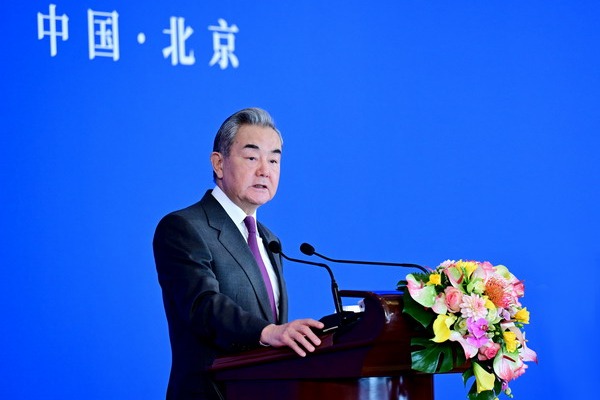Longest UN climate talks end with no deal on carbon markets


MADRID — Marathon international climate talks ended Sunday with negotiators postponing until next year a key decision on how to regulate global carbon markets.
After two weeks of negotiations in Madrid on tackling global warming, delegates from almost 200 nations passed declarations calling for greater ambition in cutting planet-heating greenhouse gases and in helping poor countries that are suffering the effects of climate change. But despite holding the longest climate talks ever in 25 nearly annual editions they left one of the thorniest issues for the next summit in Glasgow, in a year's time.
Carbon markets put a price on emission of carbon dioxide, the main greenhouse gas, and allows countries or companies to trade emissions permits that can be steadily reduced — encouraging the uptake of low-emission technologies.
Countries from Europe and elsewhere had said that no deal on how to govern the exchange of carbon credits was better than a weak one that could undermine a dozen or so existing regional carbon mechanisms.
The talks have been accompanied at times by angry protests from indigenous and environmental groups, both inside and outside the venue. The demonstrations reflected growing frustration, particularly among young people, at the slow pace of government efforts to curb climate change.
Among the documents that the UN meeting passed Sunday was the "Chile-Madrid Time for Action" declaration calling on countries to improve their current pledges to reduce greenhouse gas emissions. That is needed to come in line with the 2015 Paris Agreement target of avoiding a temperature increase of more than 1.5 degrees Celsius (2.7 degrees Fahrenheit) by the end of the century.
So far, the world is on course for a 3- to 4-degree Celsius rise, with potentially dramatic consequences for many countries.
Countries also agreed to designate funds for the most vulnerable countries to compensate them for the effects of extreme weather events, one of the most pressing issues for small island states.
But environmental groups and activists accused the world's richer countries of showing little commitment to seriously tackling climate change.
Chile chaired the talks, which had to be quickly moved to Madrid amid violent anti-government protests back home.
AP

































